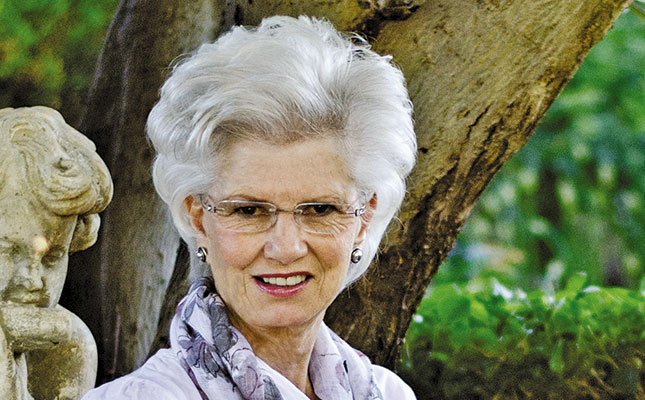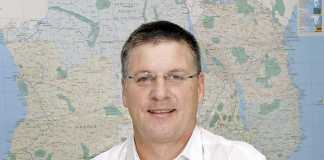
How has the ongoing decrease in farmer numbers affected your membership?
We’ve never struggled with membership. Our numbers seem to have stabilised at about 6 000. We don’t consist only of farmers’ wives anymore. We have 18 circles or regions stretching from coast to coast. While we’re not affiliated to the SA Women’s Agricultural Union, we work closely with it.
Any woman older than 16 can join the organisation. The only limiting factor nowadays is that younger women are forced to go out and work, while others spend a lot of time ferrying children to school and extramural activities. Those who join realise that we have a lot to offer.
How has the CWAA changed?
We’ve worked hard to bury the perception that we’re just a bevy of elderly ladies making koeksisters for church bazaars. We’re marketing the organisation aggressively, shifting the focus to issues that are important to families, communities and the country as a whole. We now function within six main categories: agriculture and horticulture, public affairs, education and culture, health, arts and crafts, as well as lifestyle. This includes lectures, workshops, competitions, demonstrations, exhibitions and excursions.
Read: Women’s month ends on high note
But looking back at a bygone period when members were less educated, baking, needlework and learning to run a home in general was the natural thing to do – a necessary part of our evolution. Today our members are not only empowered to improve their own lives and the lives of those around them by using their skills, but they can confidently teach the basics of home-building to less privileged members of the community.
Our main goal is adult education – empowering women to play meaningful roles in all aspects of life. We provide a platform for women to associate freely with one another, to discover and develop their talents, and to find new interests. We really have exchanged the koeksister for the computer. Technological advances have made it clear that computer skills are more important than reading recipes. Towards the end of 2008, only 10% of our members had Internet facilities and 2% were computer-literate. By September 2013, more than 60% had acquired computer skills. The Internet will play an increasing role in rural development.
How do you see the future of rural South Africa?
We’re acutely aware of challenges, such as unemployment, faced by rural dwellers but one should not get too despondent.
The platteland is not necessarily doomed but we cannot recreate the one we once knew. The platteland of tomorrow will have to comply with modern requirements.
How do you prepare members for that?
It’s not only the labour situation that has changed radically but the general farming situation, perhaps more than some people realise. The farmer’s wife has become a partner in the business. Members’ knowledge of local farming conditions as well as international trends is crucial. They learn to know what they buy and, like their European consumer cousins, know what the labour and environmental practices on the farms and factories are, or should be, and how organised agriculture fits into the picture.
We do our best to influence consumers about the problems in agriculture, what products are in season and how they are produced, marketed and distributed. In a nutshell, our members attain the know-how to develop within a developing situation.
Give us a few examples of your social upliftment projects.
One rewarding initiative was the ‘teach one woman one skill’ project in which we taught women from all backgrounds a skill they could use for their own benefit and to earn an income. Between 2011 and 2013, we worked on the financial empowerment of women, showing members and workers how to manage money and to budget. An example of a personal budget for domestics was drawn up and sent to all our branches, from where it was distributed to members, with many of them learning about income and expenditure for the first time.
Read: Farmers undeterred by disabilities
Affordable, nourishing dishes were also demonstrated and women taught the benefits of using cheaper cleaning compounds such as baking soda and vinegar instead of commercial products. We stressed the importance of carefully comparing prices, shopping for special offers and the economical use of electricity. We also warned people about the dangers of borrowing, opening accounts and signing hire-purchase agreements. These actions are in line with the Millennium Development aims for the empowerment of women. We also have a long history of making donations to deserving causes, from the 1950 polio outbreak to flooding in KwaZulu-Natal.
You say you try to influence events on a national front, too.
We’d like to make an impression in all spheres. We support our men when we are expected to but also speak out when things go wrong, particularly via congresses. We give praise when it is due – such as congratulating minister Naledi Pandor on her attempts to curb crime at schools and to deal with ringleaders. We also join petition campaigns such as Operation Camelot against sexual crimes and child maltreatment, the new firearms legislation and farm violence.
Some of the positive changes we’ve helped to bring about over the years include the erection of signboards indicating resting spots along tarred roads, library services in small towns, the appointment of women at high schools, and ensuring that police everywhere have the same emergency phone number.
Do you have contact with similar organisations around the world?
We recently attended the Conference of the Associated Country Women of the World in Chennai, India. It consists of 70 countries with more than nine million members who, notwithstanding diversity in cultures, living conditions and circumstances, share common goals. Women around the world have the same needs and problems and together, we try to reach out to the needy and suppressed, especially the women, children and elderly.
For example, we’ve been involved in a three-year project sponsored by the Nederlandse Plattelandse Vroue Organisasie in which 265 of our members taught nearly 2 000 domestic workers to read and write.
How will the CWAA celebrate its 85th birthday?
We’ll start with a high tea party at Eensgezind, Durbanville, to honour the famous rose breeder, Ludwig Taschner. Some of us, on motorbikes, will then lead a convoy advertising KANSA before attending to our Eva poverty relief project ‘CWAA touches hearts and hands’. This focuses on personal health and hygiene issues specific to women in shanty towns. We will also participate in the Associated Country Women of the World project, The Gift of Reading, by donating books to children.
Email [email protected].
Thisa rtilce was originally published in the 31 January 2014 issue of Farmer’s Weekly.













